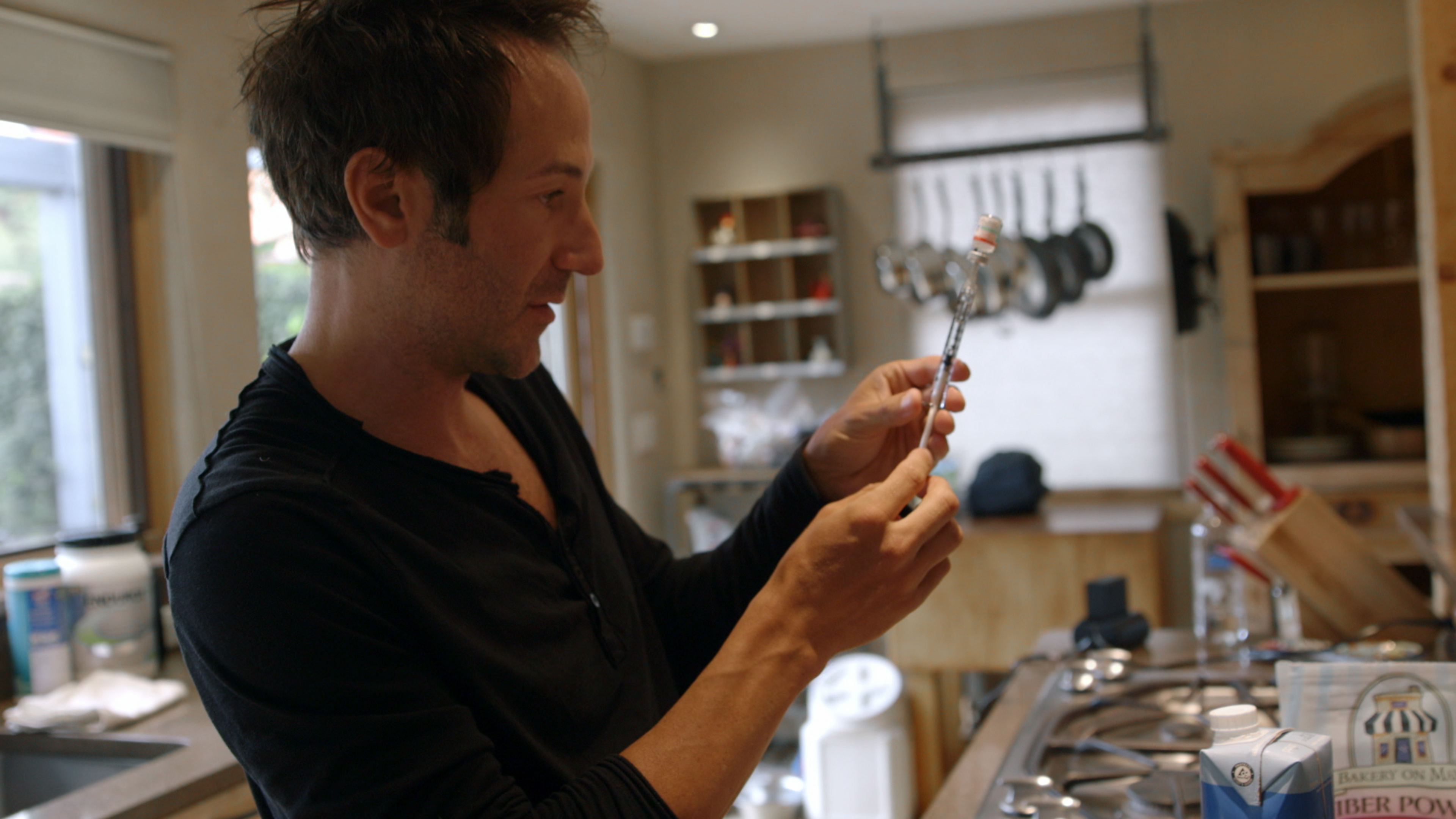
Inspired by the Lance Armstrong doping scandal, filmmaker and amateur cyclist Bryan Fogel decided to see if he, too, could take performance-enhancing drugs and get away with it.
But what started out as a first-person experiment shifted radically when Fogel sought the help of Dr. Grigory Rodchenkov, the former director of Russia’s anti-doping laboratory. In 2016, Rodchenkov blew the whistle on Vladimir Putin’s state-sponsored doping program, turning him into a fugitive in exile—and giving Fogel’s film “Icarus” cloak and dagger urgency and global significance. It’s nominated for Best Documentary Feature.
“I wanted to show how the anti-doping system in global sport was a fraud and ended up exposing a scandal on a level that I never could have imagined when I started the project,” Fogel told the Journal.
He began corresponding with Rodchenkov via email in February 2014, during the Winter Olympics in Sochi, Russia, and met him that summer at a symposium in Oregon. Rodchenkov agreed to help him, and he began taking the performance-enhancing steroids and hormones—and conspiring with Rodchenkov to substitute frozen “clean” urine samples for drug-contaminated ones.
“I wanted to show how the anti-doping system in global sport was a fraud and ended up exposing a scandal on a level that I never could have imagined.”
At that point, “I knew that he was involved in what appeared to be some wrongdoing at his laboratory but I didn’t know the extent to which he was involved or how deep and vast the conspiracy was,” Fogel said. He later helped Rodchenkov escape to the United States, and felt bound to protect him “because I had no doubt of the validity of what he was showing me and the breadth of the scandal and that it led to the Kremlin’s door.”
When the news broke, “It appeared that the International Olympic Committee was going to continue to sweep this scandal under the rug,” Fogel said. But under pressure from Rodchenkov, his lawyers, and the media, the IOC launched an investigation that corroborated prior investigations and led to the exclusion of Russia from PyeongChang. (some Russians still competed under the Olympic flag as Olympic Athletes from Russia.)
Named for the doomed flyer from Greek mythology, “Icarus” references the fall and comeuppance of “Lance Armstrong and so many others who have all the success in the world but have to push it too far and get greedy,” Fogel said.
He noted that the film, now streaming on Netflix, has had ongoing impact. “The IOC will continue to investigate and decide whether there will be further sanctions and punishments down the line,” Fogel said, adding that FIFA (world soccer) is launching its own investigation into Russian players.
The Los Angeles resident, 45, was born and raised in Denver, Colo., where he grew up “Conservadox. We kept a kosher home. I went to Hebrew school, had a bar mitzvah, all of that,” he said. “I think of myself more as a cultural Jew than a religious Jew now, but I don’t have a family yet. Maybe that will change.”
Fogel started out as a playwright, actor, and standup comedian, and made a splash with the semi-autobiographical “Jewtopia” a romantic comedy that opened Off-Broadway in 2004 after a successful Los Angeles run. He wrote, produced, and starred in it, wrote a book based on it, and directed the film version from his screenplay. He hopes to make both features and documentaries going forward, and has both in early stages of development.
But right now, he’s reveling in the spotlight the Oscar nomination has brought to the film and Rodchenkov, who left his family behind in Moscow “and risked his life to tell the truth. If Russia was willing to go to this extent to win and cheat the world of Olympic medals, there’s little doubt it would meddle in democracies, hack elections and change the course of other political affairs,” Fogel said. “I hope the attention to the film will continue shine a spotlight not only on this conspiracy and corruption but the bigger questions and issues, and be a wakeup call to take action to protect democracies around the world.”





















 More news and opinions than at a Shabbat dinner, right in your inbox.
More news and opinions than at a Shabbat dinner, right in your inbox.